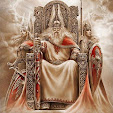Politics is the process of making decisions that apply to members of a group. It refers to achieving and exercising positions of governance - organized control over a human community, particularly a state. In modern nation states, people have formed political parties to represent their ideas. They agree to take the same position on many issues, and agree to support the same changes to law and the same leaders.
An election is usually a competition between different parties. Some examples of political parties are the African National Congress (ANC) in South Africa, the Tories in Great Britain and the Indian National Congress. Politics is a multifaceted word. It has a set of fairly specific meanings that are descriptive and nonjudgmental (such as "the art or science of government" and "political principles"), but often does carry a connotation of dishonest malpractice.
The negative connotation of politics, as seen in the phrase "play politics", for example, has been in use since at least 1.853, when abolitionist Wendell Phillips declared: "We do not play politics; anti-slavery is no half-jest with us". A variety of methods are deployed in politics, which include promoting one's own political views among people, negotiation with other political subjects, making laws, and exercising force, including warfare against adversaries.
Politics is exercised on a wide range of social levels, from clans and tribes of traditional societies, through modern local governments, companies and institutions up to sovereign states, to the international level. It is very often said that politics is about power. A political system is a frame work which defines acceptable political methods within a given society. History of political thoughtcan be traced back to early antiquity, with seminal works such as Plato's Republic, Aristotle's Politics and the works of Confucious.






No comments:
Post a Comment